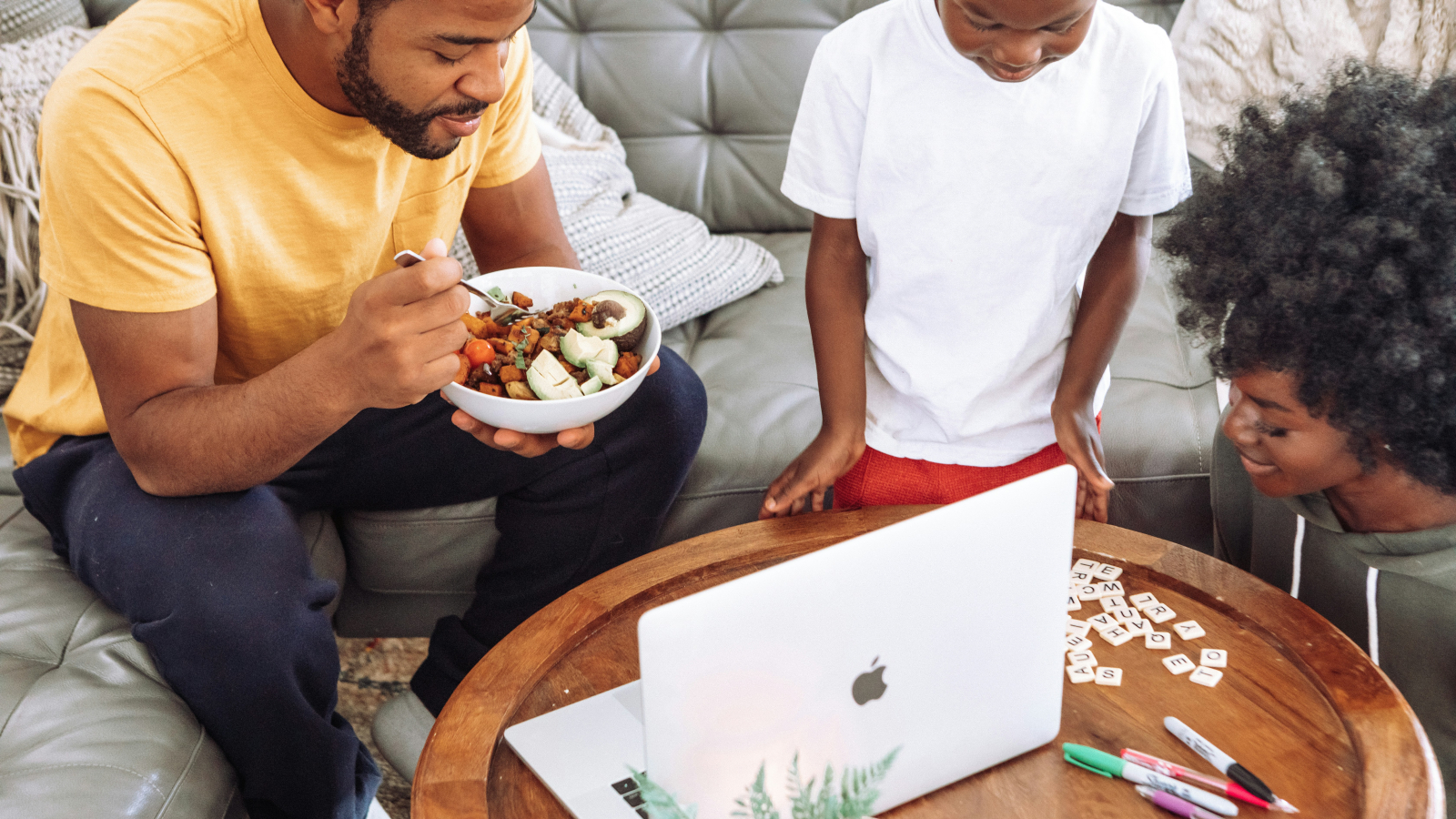How to Help Your Family Develop Positive Digital Habits

Christian Dominique

How to Help Your Family Develop Positive Digital Habits
Why Is It More Important Than Ever for Families to Discuss Digital Habits?
Nearly all children will have access to a computer, tablet, or smartphone by the time they are
ten years old in 2025.
Parents continue to wonder:
"What is an excessive amount of screen time?"
"How can I keep my children safe online?"
The solution goes beyond screen time restrictions or filters. It involves forming constructive digital habits that support the family's thoughtful and balanced use of technology.
A Healthy Digital Habit: What Is It?
A recurring technology-related behavior that promotes balance, safety, and well-being is
called a healthy digital habit. It's not just "less screen time." It takes into account why, how,
and when we use technology.
Examples include using educational apps with your children and shutting off screens an hour
before bedtime.
10 Useful Ideas to Help Your Family Develop Healthy Digital Habits
-
Establish a Regular Digital Schedule
Establish a transparent framework for screen usage.
For instance:
• In the morning, avoid using screens prior to breakfast; in the evening, turn off all electronics by 8:00 PM. -
Adhere to a "Digital Diet"
Mix creative and active activities like coding, educational games, and drawing apps with passive ones like watching YouTube. -
Establish Tech-Free Areas
Avoid using screens in public areas such as the dining room, bedrooms, and family games or reading time. -
Set an Example for the Conduct You Desire
Children pick up knowledge through observation. They will check their phones constantly if you do. -
Play Every Day Offline
Schedule time for reading, playing outside, or engaging in physical activities. Real-world experiences are essential for children's development. -
Discuss the Internet Safety
Instruct your children to:- Identify offensive messages or content.
- Always contact you with questions or concerns;
- Never post personal information online.
-
Draft a Digital Family Agreement
Create a brief written agreement that outlines expectations, screen time guidelines, and times when adults and children are free from technology. -
Incorporate Screen-Free Mindful Moments
Spend five minutes each day, away from electronics, practicing mindfulness or quiet breathing. -
Keep an Eye on Things Without Getting Involved
Parental controls should be used to encourage rather than punish. Talk about the reasons behind those limits and their benefits. -
Make Technology a Weekly Subject
Every week, set aside some time to discuss YouTube, apps, games, and other tech-related topics. Avoid making it a taboo topic.
What Are the Benefits of Healthy Digital Habits?
- More restful sleep
- Increased attentiveness and focus
- Reduced family disputes
- More time spent together and improved knowledge of digital safety
Concluding Remarks
Digital habits take time to develop. However, modest but persistent efforts can result in big
changes.
As parents, we can help our children use technology in a safer, healthier, and more
considerate way.
Do you want additional advice on raising children in the digital age?
Contact the AWE Team for coaching, workshops or additional info for you, your family, school
or community: [email protected]
Sources
- Backlinko. Screen Time Statistics: Average Usage in 2024.
https://backlinko.com/screen-time-statistic - Exploding Topics. Screen Time Stats: How Much Time Do People Spend in Front of Screens?
https://explodingtopics.com/blog/screen-time-stats - Vital Psych MD. Youth and Screen Time: A Balanced Approach to Digital Health.
https://www.vitalpsychmd.com/youth-and-screen-time-a-balanced-approach-to-digital-health - Warrenton Pediatrics. Digital Detoxing for Families.
https://warrentonpediatrics.com/digital-detoxing-for-families/ - Institute for Integrative Nutrition. 8 Digital Habits to Protect Your Mental Health.
https://www.iinn.com/8-digital-habits-to-protect-your-mental-health - NIH/National Library of Medicine. Digital Media: Promoting Healthy Screen Use in Children
and Adolescents.
https://www.ncbi.nlm.nih.gov/pmc/articles/PMC6736327/ - American Academy of Pediatrics (AAP). Media and Young Minds.
https://publications.aap.org/pediatrics/article/138/5/e20162591/60365